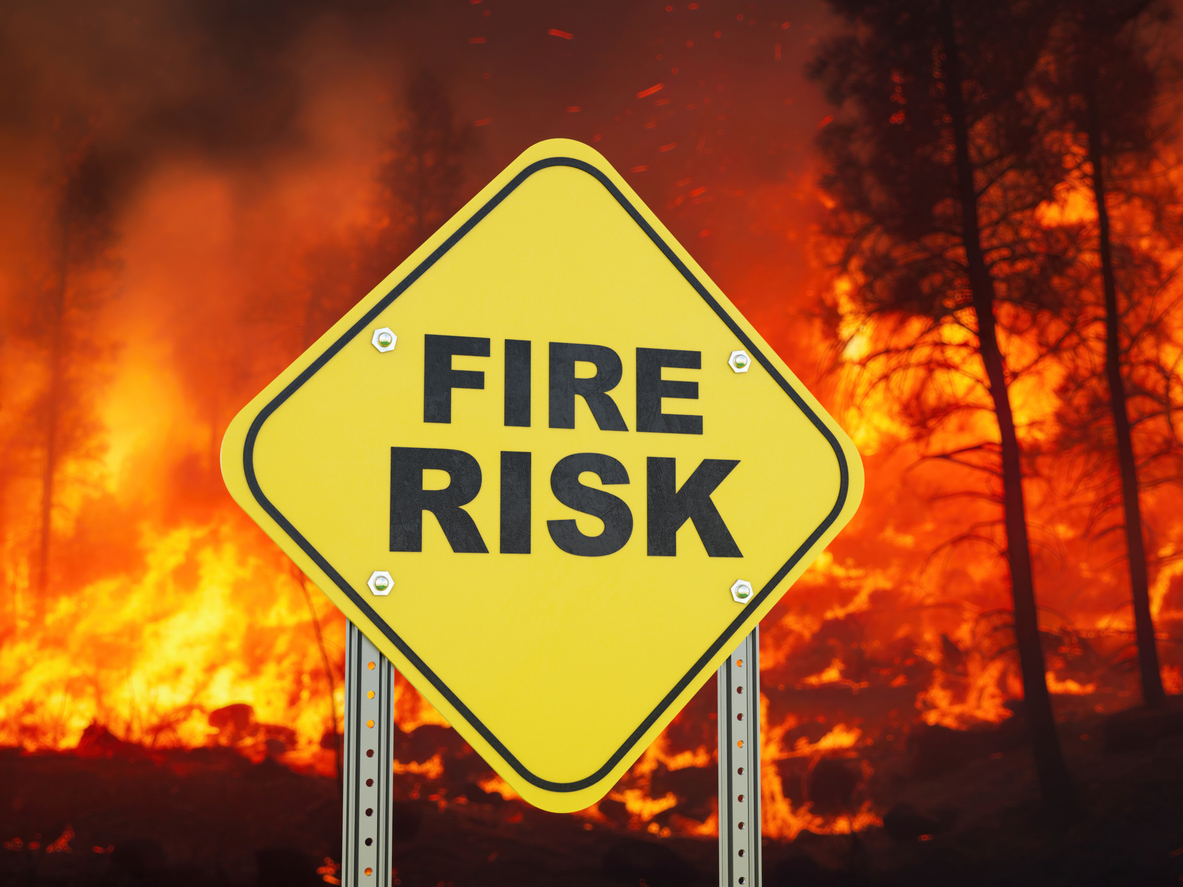Many policyholders are thinking about switching agents because of the sticker shock they feel when receiving rising insurance premiums at renewal. In two recent blogs, How to Select the Best Insurance Agent? Ten Topics Every Business Must Inquire, and How To Pick An Insurance Agent, I explored questions and criteria to find a great insurance agent. But what do insurance agents suggest should be asked when considering switching or finding a great insurance agent?
One insuretech company, Tivley, suggests the following questions:
#1: Are They Independent Insurance Agents OR Captive Agents?
What is the difference? Independent agents aren’t tied to any specific insurance company. An independent agent can shop around and find you the best rate with different insurance companies (The Hartford, Geico, State Farm, etc.). A captive agent—or direct agent—works for a specific insurance company and can only offer you policies and rates directly through that company. A third option is to work with an insurance broker. Insurance brokers act as an independent agent that is loyal to you as the customer. They often charge a percentage of the policy rate (15% is common) as the fee to work with them.
#2: What Are Their Credentials/Licenses?
Does your insurance agent have a Certificate in General Insurance? You may also want to look for an insurance agent with advanced designations, such as Chartered Property Casualty Underwriter (CPCU), Associate in Claims (AIC), Associate in Insurance Services (AIS), Certified Insurance Counselor (CIC), Chartered Life Underwriter (CLU) or Accredited Adviser in Insurance (AAI).
After looking at their licensing, take a look at their history (you can often do this through the National Association of Insurance Commissioners, the Better Business Bureau, or your state insurance department). Do they have any complaints against them? You want to make sure they have a good track record and reputation with their clients. Keep in mind—as a small business owner—you’re looking for a long-term relationship with an insurance professional that you can trust.
#3: Can You Get a Referral?
Check with other local small business owners, family, and friends. Do they have a particular agent or broker that they’ve worked with? Are there insurance professionals they would recommend who have expertise in the field you’re in? Getting a referral from someone you trust is a great way to connect with a trustworthy agent.
#4: What Type of Insurance Coverages Do They Offer?
Even if you’re referred to a great agent with solid credentials, you need to be sure they offer the types of policies that you need. Some insurance companies or independent agents don’t work in every insurance niche. For example, if you’re a general contractor, you need an inland marine insurance policy to protect your tools and equipment while in transit or stored at a job site.
If your insurance agent/insurance company doesn’t offer coverage options you need, you may need to shop around for a different insurance agency. While that is just one example, you need to do some research in advance to be familiar with the type of insurance policy or policies you may need.
#5: Is the Insurance Agent an Expert in Your Industry?
Has your agent shown a level of expertise about your industry? Are they able to show familiarity with your industry and make recommendations specific to it? It’s wonderful if you find an agent that has the right licenses and great referrals—but they need to know your business.
If you choose to work with younger or inexperienced insurance agents to give them a change to grow in their expertise, it’s commendable. You have to be clear that you’re fine if they don’t have an answer on specific questions you may have and give them time to get more information. But if you’re looking for an insurance expert, make sure you ask them pertinent questions about your industry to gauge their level of expertise and knowledge.
#6: Can You Interview Them?
This goes hand-in-hand with #5. It’s important that you can have a conversation with the agent or broker that you’re planning on working with. Will they make time in their schedule to answer any question you may have? Will they explain the different insurance options available to you? Are they trying to hard sell you on one particular policy? You can often get a feel for someone in a simple conversation.
#7: Ask Them For a Quote
One of the best ways to gauge the expertise and professionalism of an agent is their quote process. Have they reviewed several options to meet your insurance needs? Will they explain the different policy options, including price and coverage differences? A smooth process can be an indicator of future results. It’s an integral part of the process that needs to go well.
#8: Do They Handle Claims?
Most agents that work with larger insurance companies (or even independently) don’t handle claims processing or adjusting. However, they should be able to articulate what the claims process looks like, how to contact their claims department, file a claim, etc. If they can’t walk you through the process, who do you turn to when you need to file a claim? What if you file it incorrectly and lose out on thousands of dollars? Make sure you choose an agent that doesn’t leave you hanging when you need them the most.
#9: Do You Like Them?
While most people don’t find this necessary in business relationships, it can be an important factor when considering a long-term relationship. Most people like to work with someone they like and someone they trust. Do you feel that this agent is honest and trustworthy? Does your agent ask questions about your company? Does the independent agent or broker care and/or is genuinely interested in your company and not just the commission?
Berry Insurance posted a blog, Breaking Up is Hard to Do: How to Switch Insurance Agencies, which is a blatant advertising blogpost steering the reader to Berry, but made the following observations:
When it comes to your insurance agent, you should settle for nothing but AMAZING.
Working with an agency is by no means a requirement — you could instead choose to work with a direct insurance writer. But people choose to work with independent agents because they’re supposed to provide additional services and make your life easier when it comes to shopping for and managing your insurance. If they aren’t doing that for you, then what’s the point of even working with them? You could just as well cut out the middleman and work with the direct writer.
…
So if you find yourself in any of the situations below, it may be a sign that it’s time to switch to one of those above-and-beyond agencies.
If your premium has been increasing over several years.
…
If your coverages aren’t enough/you’ve had an uncovered claim
…
If you’ve experienced poor customer service
This one should be a no-brainer. Your insurance agent is there to serve and protect you — simple as that.
Maybe they’re rude to you, don’t return your calls, or have mishandled your policy details or claims. Maybe they treat you like every other customer, not customizing your policy to your individual needs at all.
…
If your agency partners with poor carriers
…
If your agent isn’t offering any additional services:
Maybe your agent is doing everything they’re supposed to be, but are they going the extra mile?
A number of independent agents advise selecting an independent agent rather than a captive insurance agent. The post, 3 Reasons to Break-up with Your Captive Insurance Agent for an Independent One, has only two points worth considering:
1. Your needs come first
An independent agent works for you, not anyone carrier, so your needs are the priority. The independent agent has access to multiple insurance carriers with many coverage options. This type of agent is able to listen to your specific needs and find the carrier that is a perfect fit.
- The focus is on you
Because the independent agent can match coverage to your needs instead of one carrier’s limitations, you are the focus. This means as you grow and your risks change, your agent can make sure you stay protected. You are far less likely to be under-insured and vulnerable when you are in the care of an independent agent.
In 10 Things to Consider When Choosing an Insurance Agent, the Hospitality Insurance Group makes the following points about selecting an insurance agent:
Direct Writers vs. Independent Agents: There are two different ways to get coverage from an insurance company. Direct writers are insurance companies that hire their own sales people to write exclusively for that one company; they work for the company that employs them. Independent agents work for the insured, not the company. However, they have contracts with multiple insurance companies and can usually offer you more options.
What type of insurance do you need? Some agents will offer many types of insurance and some will be limited in their offerings. For example, some might only offer personal lines insurance whereas others will offer both personal and commercial lines. If you own a business and are looking for an agent to write your commercial insurance, you want to make sure they have some experience in your industry.
Technical Knowledge & Credentials: You should always ask the agent about their experience before trusting them as your insurance advisor. One indication of their technical knowledge is if they have letters after their name. These letters stand for professional insurance designations that signify a higher level of experience and competence. Some of the more common designations are CIC, CPCU, ARM and CRM. Other things to look for are years of experience and education.
Personality Traits: Agents get paid commissions by the insurance company, so it is important to find one that is honest and trustworthy. They also should be passionate and enthusiastic about what they do, and of course, you should like your agent. It’s much easier to do business with people we like than people we don’t.
Questions to ask: It is okay to ask questions when looking for an agent. In fact, you should be asking questions when deciding who you want to work with. Some good questions are:
What are your areas of expertise?
What is your reach? Are you local? Statewide? Nationwide?
What is your experience in my industry? How many years have you been writing this type of insurance?
Do you have any client references?
How long have you been in business?
How many companies do you represent? Which ones?
Do your homework: Before selecting an agent, you should first do your homework on the agent as well as the agency they’re associated with. Your first step is to google the agent’s name and agency. Are there any news articles about them? Have they faced any lawsuits? Are there any reviews? Have a look at their website. Is it professional? Are there any testimonials? You may also want to look at their social media pages (Facebook, LinkedIn, Google+, Twitter, Instagram) for reviews and educational content.
Expectations: A good way to gauge if the agent can live up to your expectations is by asking them for a quote before you commit to doing business with them. This should give you a good idea of how efficient they are (how fast they can get you a quote), how thorough they are when explaining what coverage you’re afforded in the policy, why the price varies if more than one quote is provided.
Detailed written proposals: Once your agent gets quotes for your business, you should review them carefully. There are different types of carriers and coverages can vary dramatically. Some carriers may have exclusions on their policies removing important coverages. Make sure you work with the agent to ensure you have the coverage you need, even if that means paying a little more.
What to expect after binding coverage: Your agent’s job is not done once you’ve bound coverage and your expectations of them should not end there either. Customer service is what is going to separate a good agent from a great agent. Say you purchased a new piece of equipment, built a new structure or underwent renovations—all of these things, along with many others, can affect your insurance policy. Your agent should be checking in with you periodically throughout the year to ask about any changes that might affect your policy. Your agent should be one that is approachable and reachable at all times because when things do happen, that is when you’ll need them most.
Times change—stay active with your insurance coverages. As mentioned above, you need to stay active with your insurance coverage because things do change over time. Your agent should also be keeping you up to date on important regulations, new laws, changes with your carrier and anything else that might affect you as the end customer.
Finally, just because prices are rising does not mean that you should switch insurance agents. Policyholders should strive to find a great insurance agent and then keep a close relationship with that agent. Fifteen years ago, I wrote Insurance Agents and Policyholders Need to Communicate and Share Information to Get Coverage Right, which made the following observation:
Insurance agents perform a vital function in the insurance marketplace and especially with businesses. I am not a fan of internet marketing and placement of insurance because agents can provide much better and detailed explanations of various coverages needed by different businesses.
For instance, our law firm carries an extraordinary amount of coverage for valuable papers and data restoration, which might not be important to a butcher shop. Yet, a butcher shop may need a utility services endorsement, spoilage coverage, and equipment breakdown coverage to properly protect its large investment in refrigerated meat. Insurance agents are trained to investigate those needs and make policyholders aware of those coverages that prevent economic calamity.
My advice is for policyholders to listen to insurance agents about the products that are available. Agents need to spend more time with clients and establish a relationship where insurance is looked upon as a necessary hedge against unthinkable consequences.
I am still a proponent of policyholders finding great human insurance agents and developing a trusting and close relationship. The more affluence one obtains, the more vital this close agent-policyholder relationship becomes.
Thought For The Day
Insurance is something you buy in case bad stuff happens. A good insurance agent helps you understand what ‘bad stuff’ you might actually face.
—Dave Ramsey




